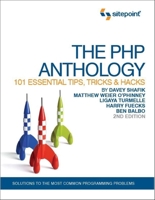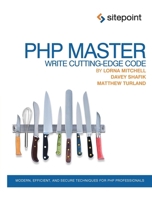Sensor Selection Guide: Optimizing Manufacturing And Processes
Select Format
Select Condition 
Book Overview
Offers a self-study course addressing the facets of sensor applications including a sensors application guide. This guide provides information from theoretical and practical perspectives. It also includes descriptions of sensors, sensor technologies, sensor manufacturing, artificial intelligence, and more. This description may be from another edition of this product.
Format:Paperback
Language:English
ISBN:1556179871
ISBN13:9781556179877
Release Date:June 2006
Publisher:ISA
Length:178 Pages
Related Subjects
Client-Server Systems Computer Design Computer Science Computers Computers & Technology Data in the Enterprise Methodology Microprocessors & System Design Networking Programming Languages Software Software Design & Engineering Software Design, Testing & Engineering Software Development Software EngineeringMore by Davey Shafik
Customer Reviews
5 customer ratings | 5 reviews
There are currently no reviews. Be the first to review this work.
























